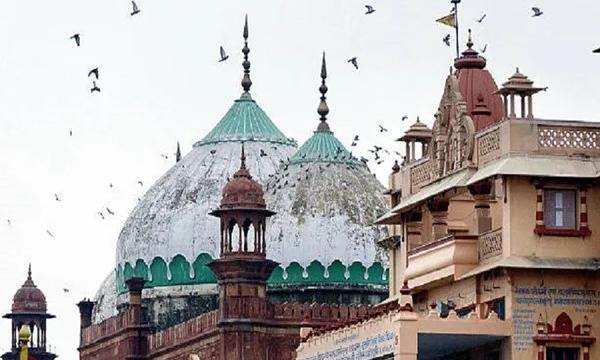
Muslim side challenges Allahabad HC order on Shahi Idgah case in Supreme Court
text_fieldsThe Muslim side in the case of Shahi Idgah mosque in Mathura has approached the Supreme Court to challenge the Allahabad High Court's decision that dismissed their plea against the maintainability of 18 cases linked to the mosque dispute.
This development follows an August 1 ruling by the high court, which rejected the Muslim side's arguments and ruled that the "religious character" of the disputed site needed to be determined.
The Committee of Management Trust, Shahi Masjid Idgah, represented by advocate RHA Sikander, has filed the petition in the apex court, challenging the high court’s decision. According to Sikander, the Supreme Court is likely to take up the matter for hearing next week.
The case centres around the Shahi Idgah mosque complex, situated adjacent to the Krishna Janmabhoomi temple in Mathura, where both Muslim and Hindu communities assert historical claims over the land.
The Krishna Janmabhoomi-Shahi Idgah dispute has been a long-standing issue, involving multiple legal suits. The Muslim side had contested the maintainability of these cases, citing the Places of Worship (Special Provisions) Act, 1991, which prohibits changing the religious character of any place of worship as it existed on August 15, 1947.
However, the Act notably exempted the Ram Janmabhoomi-Babri Masjid dispute from its purview, but the Muslim petitioners argued that the same Act should apply in this instance to protect the Shahi Idgah mosque from claims of Hindu litigants.
On August 1, Justice Mayank Kumar Jain of the Allahabad High Court dismissed the Muslim side's objections, ruling that the religious character of the Shahi Idgah mosque, as it stood on August 15, 1947, must be determined based on documentary and oral evidence provided by both parties.
The judge further remarked that a place of worship cannot have dual religious character, stating, “Either the place is a temple or a mosque. The religious character of the disputed site is to be determined, and it cannot hold both temple and mosque characteristics simultaneously, as these are adverse to each other.”
The cases brought by the Hindu litigants seek the removal of the Shahi Idgah mosque, which they claim was built during the reign of Mughal emperor Aurangzeb after demolishing a temple that once stood on the site. The Hindu petitioners have requested the high court to oversee a court-monitored survey of the mosque complex, similar to the approach taken during the Babri Masjid-Ram Janmabhoomi title dispute. They argue that signs exist within the mosque complex that suggest the presence of a former temple on the land.
The Allahabad High Court, in a December 14, 2023 order, agreed to a court-monitored survey of the Shahi Idgah mosque complex, appointing a court commissioner to oversee the process. However, on January 16, 2024, the Supreme Court stayed the high court's order, later extending the stay until November 2024 to allow for further examination of the matter. A bench headed by Justice Sanjiv Khanna has been overseeing this extension, which prevents any immediate action from being taken on the survey.
The 1991 Places of Worship Act is at the heart of the Muslim side's argument. They contend that the law clearly prohibits any alteration of the religious character of a place of worship from what it was on the day of India’s independence. The Hindu side, on the other hand, argues that the mosque was constructed on land belonging to the Shri Krishna Janmabhoomi Trust and that their claim deserves legal consideration.
In addition to challenging the maintainability of the cases, the mosque management committee has also filed petitions in the Supreme Court, questioning the high court's May 26, 2023 decision to transfer all cases related to the dispute from the Mathura courts to itself. The committee argues that such a move places an unfair burden on their side, as it centralises the entire litigation process under the high court's jurisdiction.























